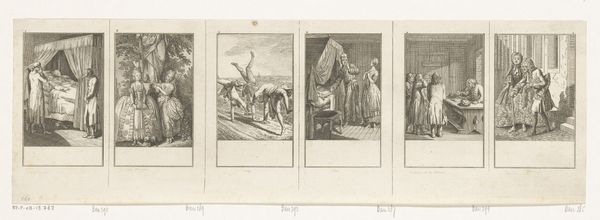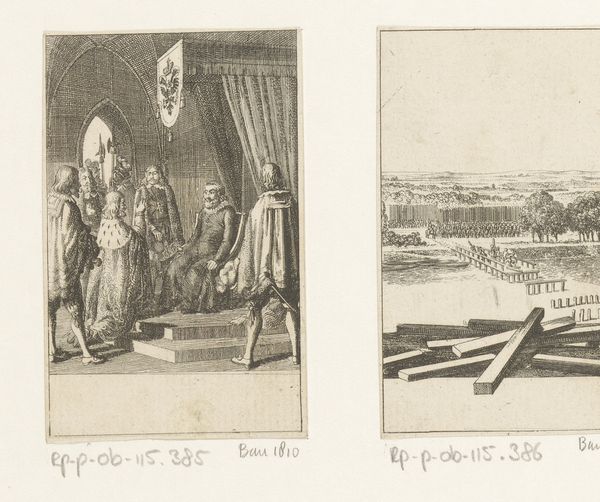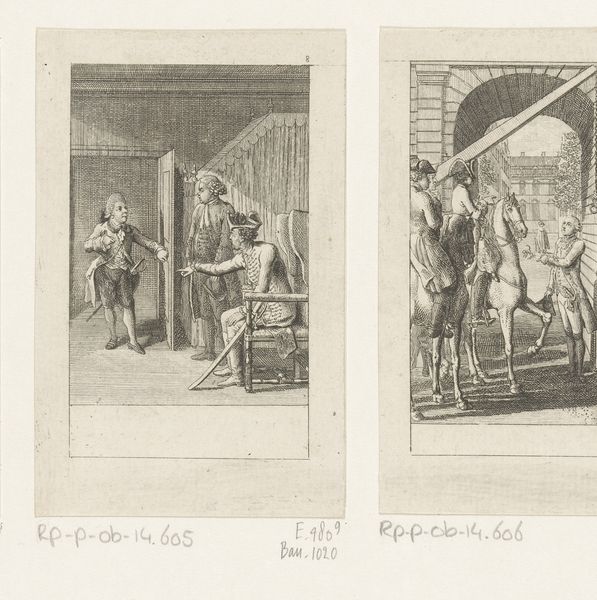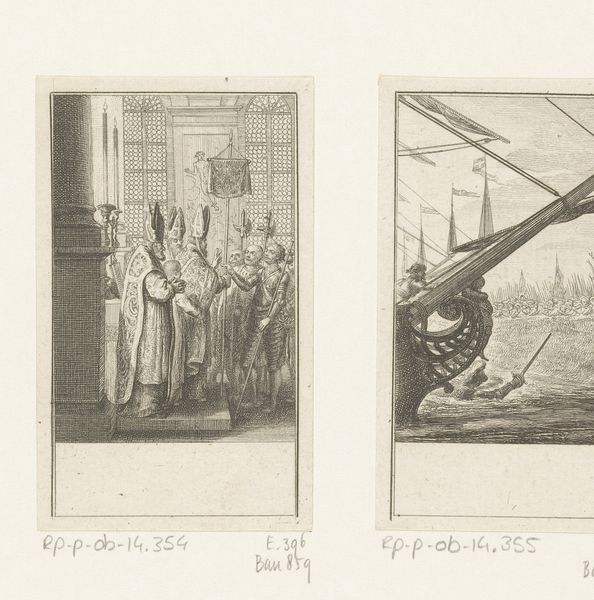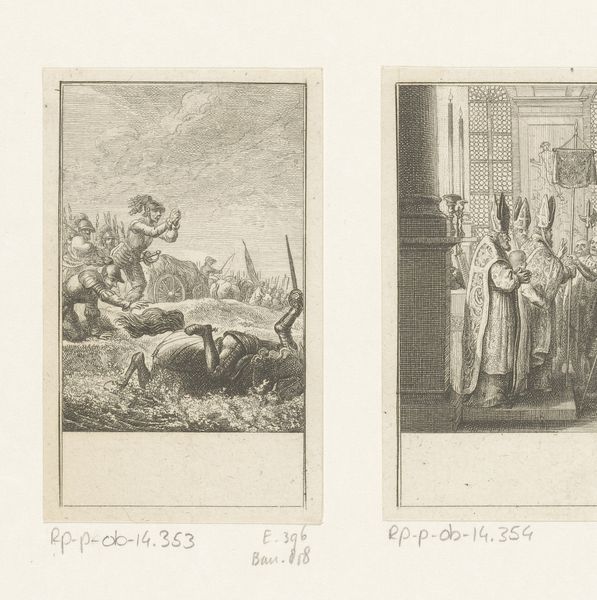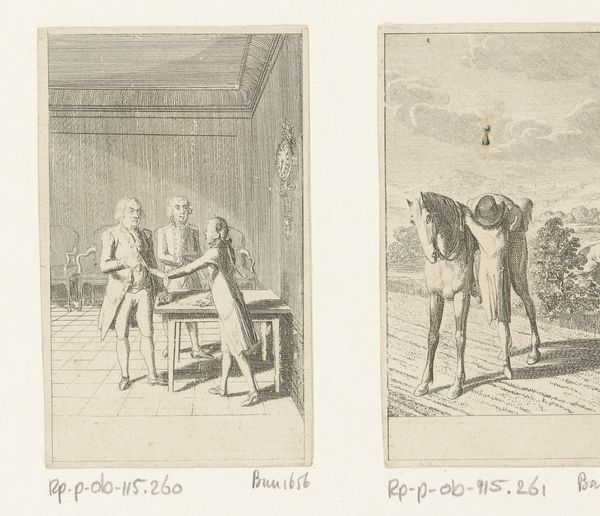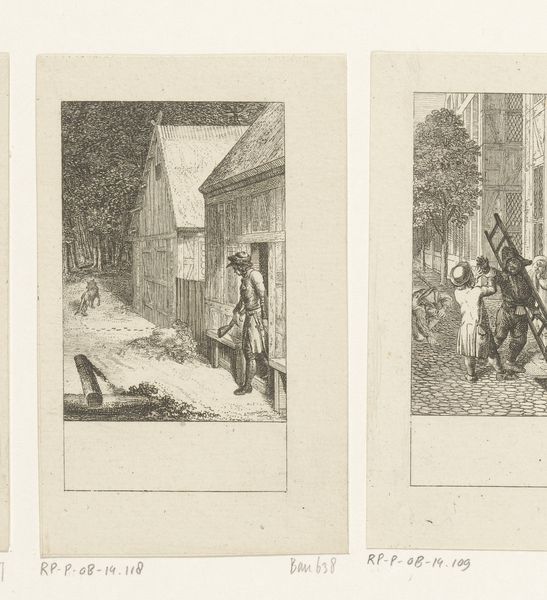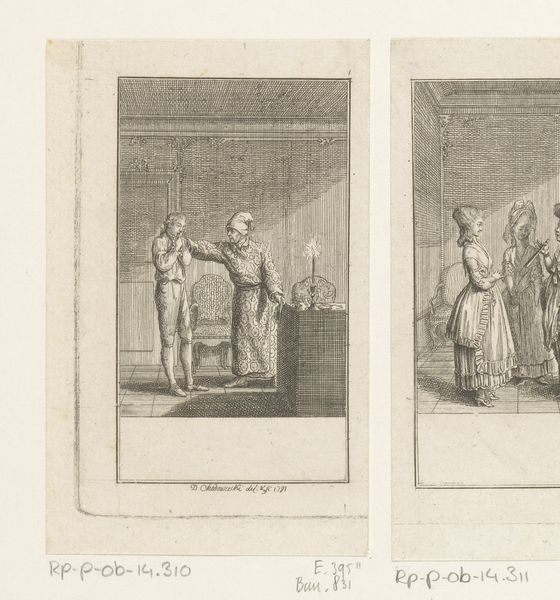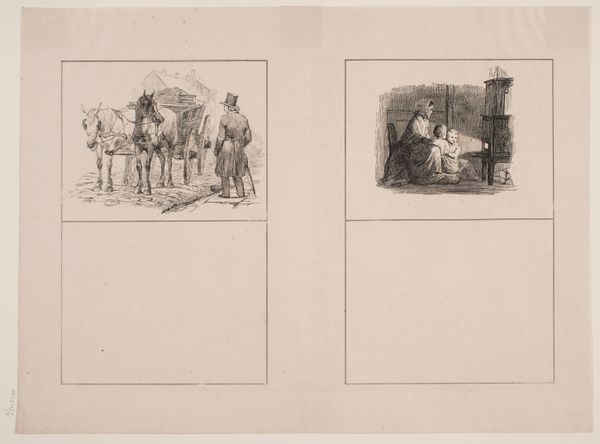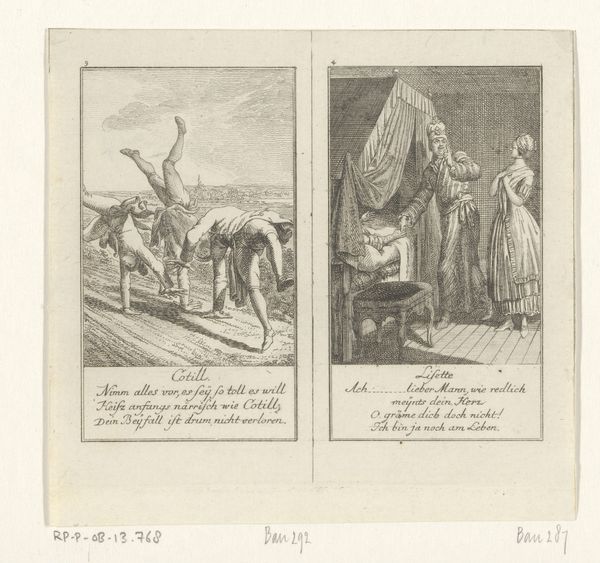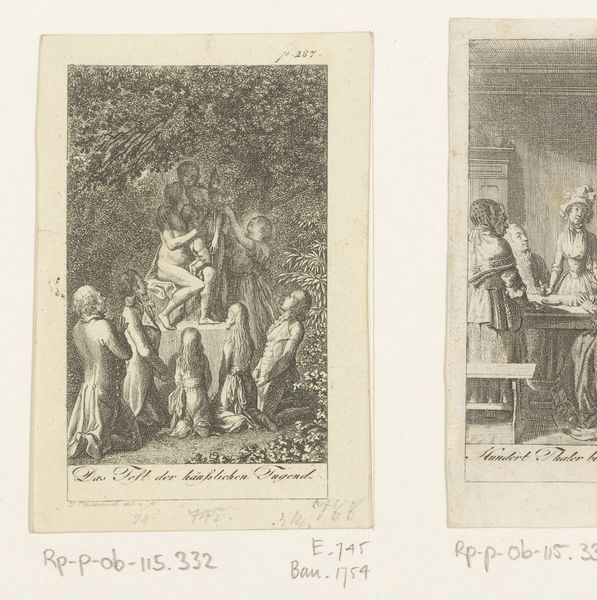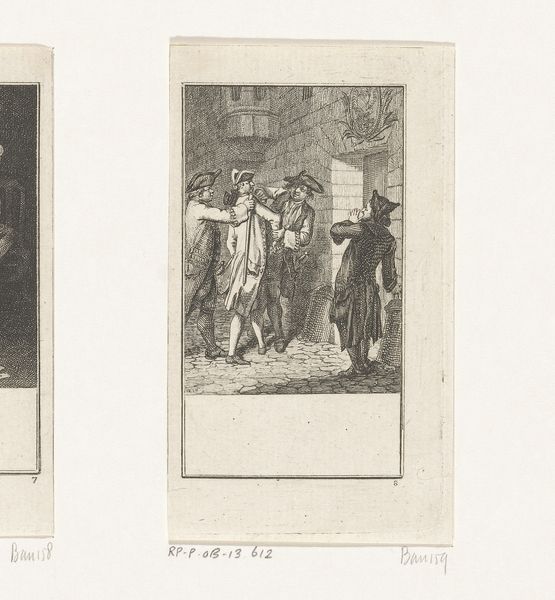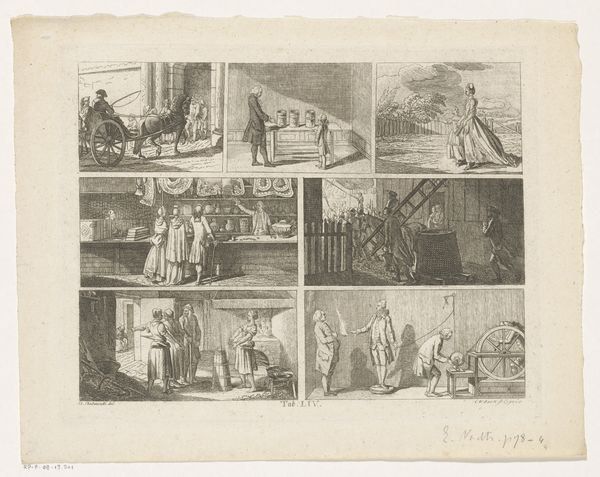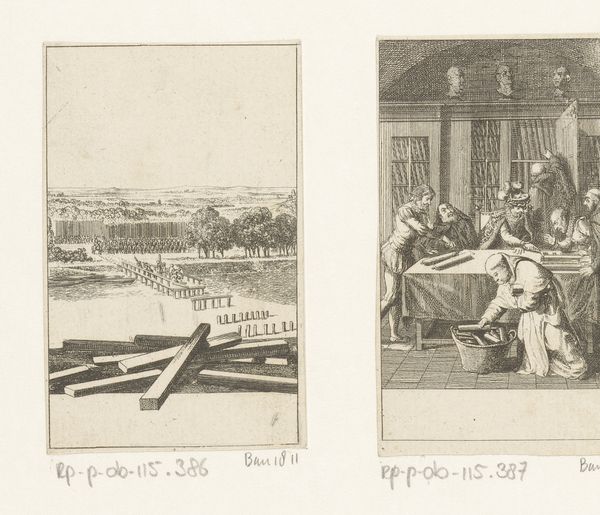
drawing, print, pen, engraving
#
drawing
#
narrative-art
# print
#
pencil sketch
#
old engraving style
#
landscape
#
romanticism
#
pen
#
cityscape
#
genre-painting
#
history-painting
#
engraving
Dimensions: height 91 mm, width 53 mm
Copyright: Rijks Museum: Open Domain
Editor: This is Daniel Chodowiecki's 1793 engraving, "Leopold verdrinkt tijdens zijn reddingsmissie," housed in the Rijksmuseum. The frantic scene on the left depicting a chaotic rescue juxtaposed with the solemn moment between a couple in the adjacent scene creates a striking contrast. How do we unpack these linked scenes, both separately and together? Curator: Let's begin by thinking about what is *not* depicted. Why do you think Chodowiecki focuses on this, specifically: a leader's supposed act of heroism culminating in tragedy? The composition guides us, doesn't it? Consider the social context of 1793; think about revolution and evolving ideas about leadership...does that help contextualize Chodowiecki's narrative choices here? Editor: I see what you mean. It almost seems to question the glorification of leaders by focusing on a futile effort rather than a successful triumph. The Romantic-era style lends itself well to this, focusing on emotional intensity. Curator: Precisely! This print allows for discussion on leadership, sacrifice, and even perhaps, the vanity of power amidst widespread suffering. What message is Chodowiecki communicating to his contemporary audience in portraying this dramatic, and somewhat ironic, "rescue mission?" Editor: So it’s not simply a historical depiction, but a commentary on leadership and perhaps the political landscape of the time. The emotional weight of the moment, emphasized by the composition and style, creates a narrative about more than just a single heroic failure. Curator: Exactly. It’s crucial to remember that artists respond to and shape the world around them. Art, then, becomes a powerful form of social critique. Editor: I never considered the artwork as something that encourages critical thoughts of societal issues. Thanks for opening my mind with these historical contexts! Curator: My pleasure. Hopefully now you can consider new possibilities for how art can influence political discourse!
Comments
No comments
Be the first to comment and join the conversation on the ultimate creative platform.
